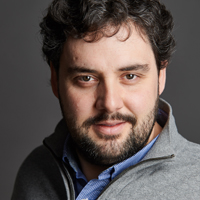Projects
Topics: Statistical Natural Language Processing, LLM, Social Network Analysis, Data Science, Sentiment Analysis and Big Data.
Horus 360 IOMS NextGen
This work was supported by Portugal 2030 – Compete 2030 Reference: COMPETE2030-FEDER-01316200 Ongoing (36 months) - Started: 2025 Ends: 2028
Continuing the development of the previous HORUS 360iOMS project which investigated and developed an “intelligent offender management system,” HORUS 360iOMS NextGen aims at the R&D of: (i) Large Language Models (LLMs); (ii) vehicle/OMS application interfaces for vehicular mobility; (iii) a system for acquiring and providing data in an offline mobility context; (iv) AI and cybersecurity in a penitentiary context.
Hidropon.IA - Sistemas de agricultura de precisão assistidos por IA para culturas
This work was supported by Portugal 2030 – Compete 2030 Reference: COMPETE2030-FEDER-01488700 Ongoing (36 months) - Started: 2025 Ends: 2028
The Hidropon.IA project aims to increase the productivity and food safety of hydroponic crops. A platform will be developed with a digital twin of the system, which will use AI modules and algorithms to optimize resource management and traceability. The analysis of historical and real-time data collected by sensors at various levels will improve efficiency and profitability.
Attract
Co-financed by the Digital Europe Programme and Plano de Recuperação e Resiliência (PRR) Reference: 101083770 Ongoing (36 months) - Started: 2023 Ends: 2026
Aligned and contributing for European and National policies, ATTRACT DIH defines an ambitious plan to support SMEs and public entities in their digital transformation and consolidation through the full exploitation of the synergetic potential between Artificial Intelligence and High-Performance Computing. ATTRACH DIH acts on both the supply and use of technology.
PHArA-ON
Co-financed by the European Union through the Horizon 2020 framework Reference: 857188 Concluded (36 months) - Started: 2021 Ends: 2024
The overall objective of the PHArA-ON project is to provide support for Europe’s ageing population by integrating digital services, devices, and tools into open platforms that can be readily deployed while maintaining the dignity of older adults and enhancing their independence, safety, and capabilities. The project will utilise a range of digital tools including connected devices (e.g., the Internet of Things, IoT), artificial intelligence, robotics, cloud and edge computing, smart wearables, big data, and intelligent analytics that will be integrated to provide personalised and optimised health care delivery.
PAM4WELLNESS
This work was supported by Portugal 2020 – Centro 2020 – European Regional Development Fund Reference: POCI-01-0246-FEDER-181319 Concluded (28 months) - Started: 2021 Ends: 2023
The project’s main objective is to enhance the technical-scientific knowledge in the field of aromatic and medicinal plants (PAM), in business and R&D entities, through agile and effective transfer processes for companies, aiming at the economic and commercial valorization of the PAM’s value chain - health and well-being.
HORUS 360º iOMS inteligente Offender Management System
This work was supported by Portugal 2020 – Centro 2020 – European Regional Development Fund Reference: CENTRO-01-0247-FEDER-113066 Concluded (36 months) - Started: 2021 Ends: 2023
The HORUS 360 iOMS project aims to research and design a solution that supports the management of operations and information generated during the detention “life cycle”, imprisonment or surveillance of persons subject to custodial and non-custodial judicial measures. Through Artificial Intelligence and Predictive Analysis technology, the solution also supports the rehabilitation process and judicial or administrative decision-making processes.
MOVES
This work was supported by National Founding from the FCT - Fundação para a Ciência e a Tecnologia Reference: PTDC/EEI-AUT/28918/2017 Concluded (48 months) - Started: 2018 Ends: 2022
Within this project, we propose to develop a multilingual surveillance system capable of detecting emerging crowds by identifying rising events that foster high focus, high energy and high emotion on social media. Our fundamental hypothesis is that virtual crowds evidence similar characteristics to real crowds, which may allow their modelization in terms of complex computer systems by relying on advanced natural language processing and machine learning techniques. The current project lays at the intersection of important scientific research topics, namely urban informatics, natural language processing for social media, predictive analytics over big social data and image semtiment analysis.

